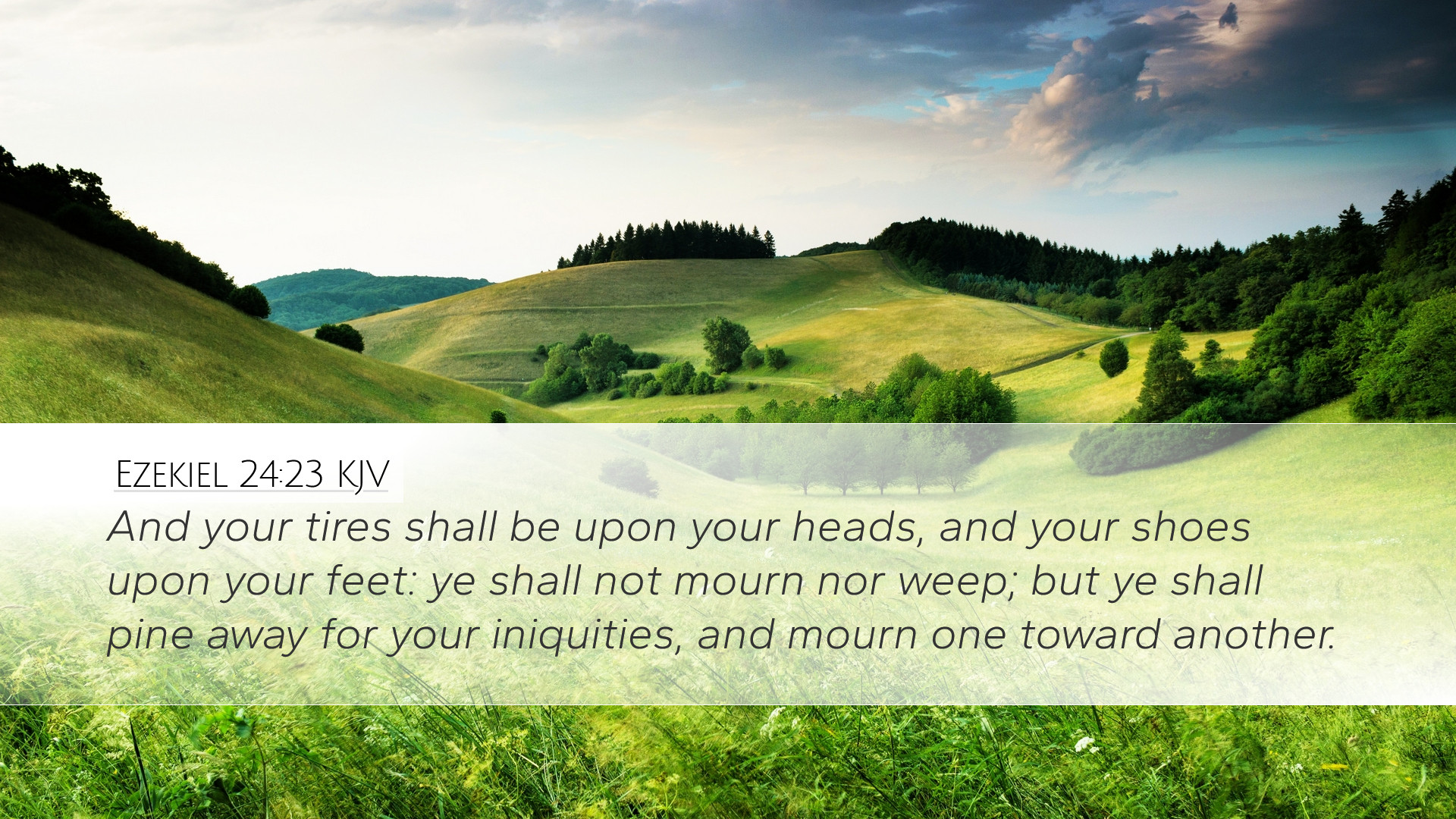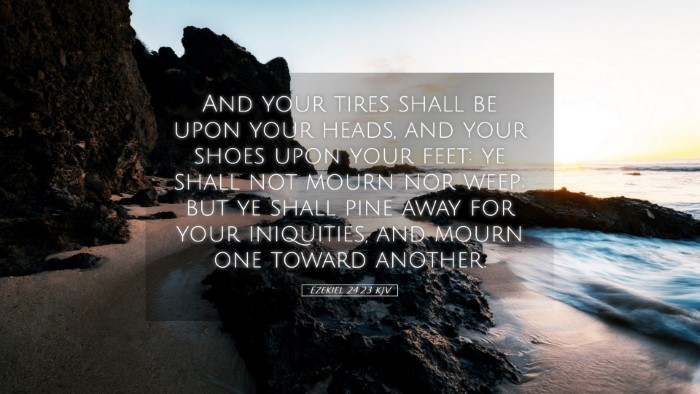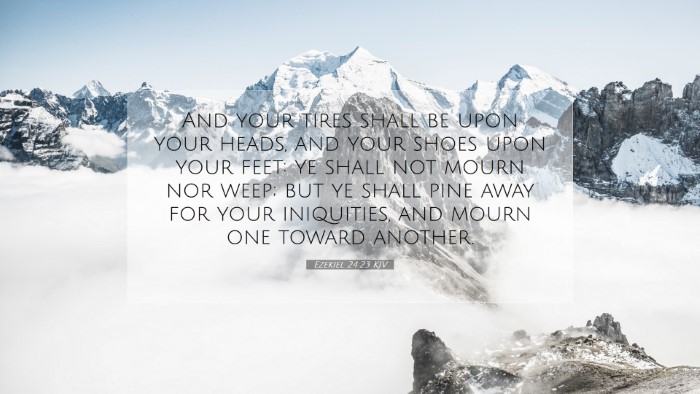Ezekiel 24:23 Commentary
Ezekiel 24:23 states, "And your turbans shall be upon your heads, and your shoes on your feet: you shall not mourn nor weep; but you shall pine away for your iniquities, and mourn one toward another." This verse occurs in a larger context where God conveys a profound message through the prophet Ezekiel, emphasizing the severity of sin and the consequent judgment upon Israel.
Contextual Analysis
This chapter of Ezekiel is particularly significant as it marks a turning point in the narrative where God declares the impending destruction of Jerusalem. The imagery of mourning is prominent, yet Ezekiel is instructed not to engage in traditional expressions of grief, reflecting a deeper spiritual reality.
Exegesis and Interpretation
-
Symbolism of the Turban and Shoes:
The mention of turbans and shoes symbolizes readiness and dignity, reflecting the priestly attire and the role of the people of God. This signifies that, despite the imminent destruction, they are to maintain their identity as God's people even in judgment.
-
Absence of Mourning:
The directive to refrain from mourning or weeping is not merely a physical abstention but speaks to a spiritual state. It illustrates that the coming calamity is justified, and they should confront the reality of their sin instead of resorting to mere ritualistic grief.
-
Corporate Mourning:
The phrase "mourn one toward another" indicates a communal aspect of their sorrow. It reflects an essential truth: their suffering is interconnected, emphasizing the shared consequences of corporate sin.
Theological Reflections
The command not to mourn or weep while being faced with great loss leads to rich theological insights about sin, judgment, and communal responsibility:
-
Sinfulness of Israel:
Matthew Henry comments on the overall depravity, stating that Israel's iniquities warranted such a strong disciplinary action from the Lord. This highlights the severity with which God views sin and the consequences that follow.
-
Consequences of Disobedience:
Albert Barnes emphasizes that the denunciation of mourning signifies a time of urgent repentance. To pine away for iniquities rather than grieving over losses underscores the necessity of turning toward God rather than merely lamenting circumstances.
-
Call to Personal Reflection:
Adam Clarke elaborates that instead of focusing on the national calamities, individuals should reflect on their personal roles in contributing to the collective iniquity. This verse serves as a powerful reminder for both personal and communal introspection.
Practical Implications for Today
The message contained in Ezekiel 24:23 resonates profoundly with modern readers, particularly in pastoral contexts:
-
Understanding God’s Holiness:
Pastors should emphasize a theological understanding of God’s holiness and justice. The refusal to mourn signifies that God expects His people to recognize the gravity of their wrongdoing without seeking to escape through outward expressions of sorrow.
-
Encouraging Genuine Repentance:
The focus on personal and communal repentance is crucial. Congregations must be led to examine their lives and communities, seeking real transformation and not mere external compliance to rituals.
-
The Role of Community:
This verse underscores the importance of community accountability. The call to "mourn one toward another" implies that believers must support one another in the journey of reconciliation with God, promoting a culture of honesty and pastoral care.
Conclusion
Ezekiel 24:23 serves as a poignant reminder of the reality of sin, the expectation of God’s people amid judgment, and the need for genuine reflection rather than superficial mourning. As believers grapple with the weight of iniquity, they are called not only to mourn their condition but also to seek restoration and a rebirth of their relationship with God.


